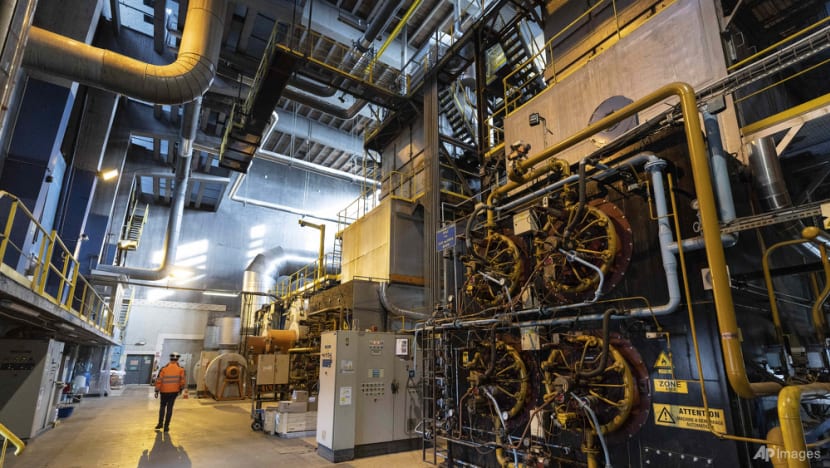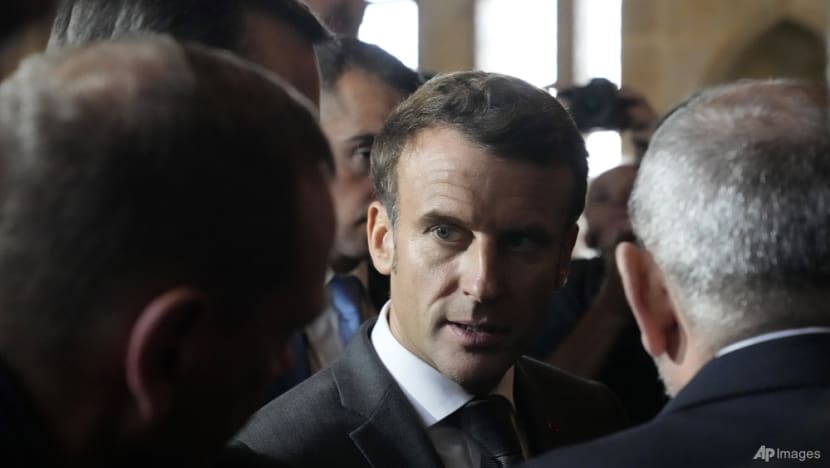Europe’s energy crisis: Tough winter ahead for consumers with rising prices, utility costs
Europe is scrambling for solutions to an energy crunch as winter – a time of traditionally higher consumption – approaches. It is likely to make it through, but with some economic and social bruises, said one expert.

PARIS: Ms Aurelie Ribay, who runs a bakery selling fresh bread and pastries at a street corner in northern Paris, has been feeling the heat from rising living costs in recent months.
Her electricity prices have already climbed 10 per cent since the summer, and she fears that as her utility costs increase, the price of France’s national staple – the baguette – may have to rise too.
“Of course, it can happen, because if the wheat and the butter costs still increase, I will be forced to increase my prices,” said the owner of Ribay Bakery. “I can’t do my work without earning some money.”
Countries in Europe are facing growing unease, as they prepare to enter winter in the Northern Hemisphere. Soaring prices across various energy sources, including oil, natural gas and coal, are affecting consumers, who have to deal with rising inflation and rocketing utility costs.
EUROPE’S ENERGY CRISIS
The continent is facing an energy crisis, due to its high dependency on Russian oil and gas, the head of the International Energy Agency (IEA) said on Tuesday (Oct 25).
“Europe made a mistake, despite the IEA’s years of underlining and warning that you shouldn't rely on one single major supplier for anything,” said IEA executive director Fatih Birol.
“The bulk of the gas, and a significant part of the oil, (were) coming from one single country, which is Russia.”
Ahead of winter in the northern hemisphere, the European Union is trying to find solutions to the continent’s energy crisis while also trying to reduce their reliance on Russian energy imports. Ross Cullen reports.
Due to the fallout from the war in Ukraine, Russian energy supplies have dwindled, and European countries have struggled to find alternatives.
In the lead-up to the coldest period of the year, the European Union (EU) is looking for solutions to the energy crunch at a time of traditionally higher consumption. Energy use for heating and lighting typically increases in December and January.
EU leaders are now trying to reduce their reliance on Russian energy imports.
Europe may make it through this winter, though somewhat battered, if the weather remains mild, said Dr Birol during the Singapore International Energy Week.
"Unless we have an extremely cold and long winter, unless there are any surprises in terms of what we have seen, for example the Nord Stream pipeline explosion, Europe should go through this winter with some economic and social bruises," he added.
In France, thousands have been marching on the streets in recent weeks to call for more financial help for the public.
French consumer rights group UFC-Que Choisir’s head of energy Lucile Buisson said because the energy crisis is global, rising costs in one country can impact consumers in another.
“In France, we are protected by our nuclear power, our energy independence. But we recognise that our energy, like that of other European countries, is put on the market,” she added.
“So prices are going to rise as they are linked to the energy tensions in other countries, like the European market.”
Ahead of winter, France has finished filling its gas storage tanks, but was forced to reopen a mothballed coal-fired power station to boost capacity.
French President Emmanuel Macron, in August, warned of a difficult winter and what he called "an end of abundance".

ENERGY-SAVING MEASURES
The French government has since unveiled an energy sobriety plan to reduce the country’s energy consumption by 10 per cent in two years. The measures called for the public to cut their consumption, including turning off hot water and lights where possible, and turning down the heating.
Other countries in Europe are also facing high costs and supply issues.
Germany, for instance, has suffered the worst exposure to the squeeze on supplies, as the country has tried to wean itself off Russian energy reliance.
The German government had to sign an agreement with France to provide Paris with electricity, if France helps out with gas supplies.
Domestically, energy-saving measures for the winter have also been introduced to encourage people to limit the use of lighting and heating in public buildings.
The winter savings package unveiled by Berlin is of an unprecedented size, according to energy security analyst Annabelle Livet of the Foundation for Strategic Research.
"It is quite gigantic, but I would say that it is also in line with the crisis that is affecting Germany,” she said. “Unlike France, Germany is very dependent on gas, especially Russian gas. It is even more affected by this energy crisis.
“And so, what is going to happen is that it has a kind of double shock. It has the pure and hard energy shock which also translates into an industrial shock.”
Related:
As governments scramble to find more ways to tackle the troubling energy situation, Europeans are bracing themselves for a likely tougher winter.
For Ms Ribay, the price pressures on her bakery business are worrying.
“I can feel it from my customers because they buy less, and also from my team because they need money to have a good life,” she added.
“It’s a preoccupation, a worry for everybody. I can feel it every day.”















